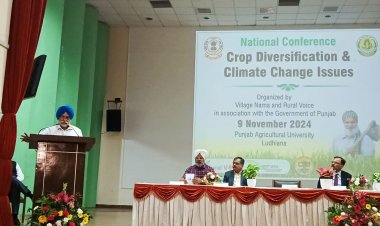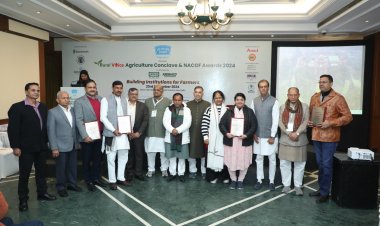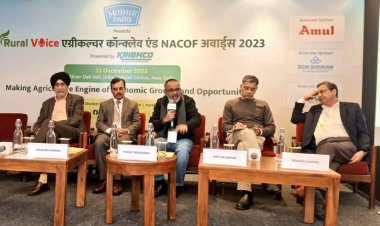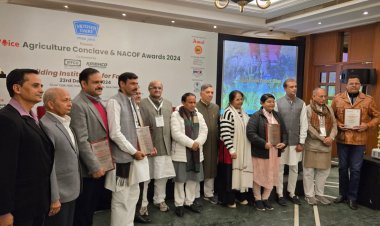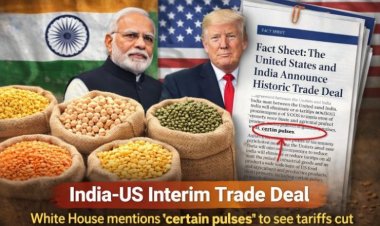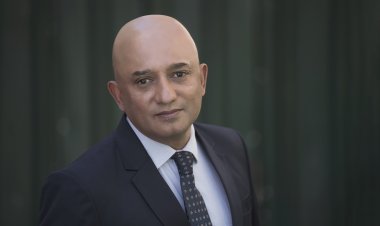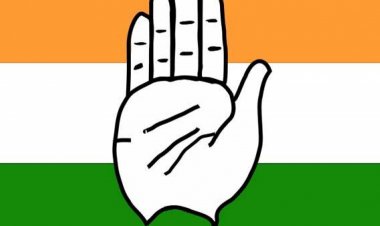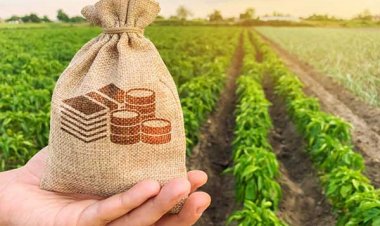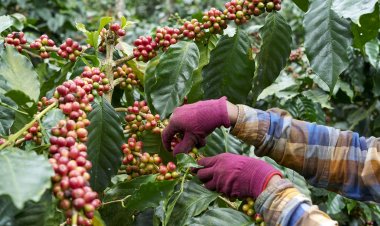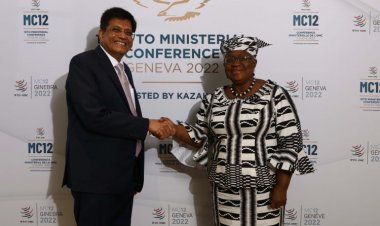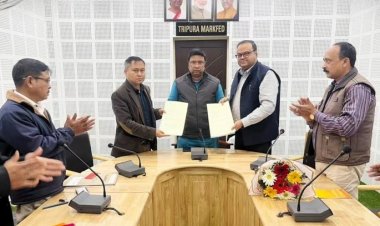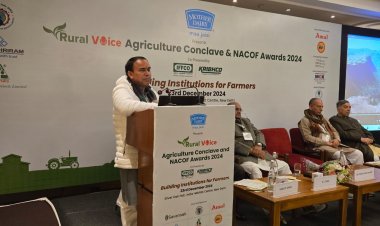A special session on 'Role of Media and Civil Society in Rural India’ saw animated discussion on rural issues seen through the eyes of the media. The session was organised by 'Rural Voice' and socratus on the occasion of Agenda for Rural India National Convening and the launch of its quarterly bi-lingual magazine 'Rural World' in New Delhi on November 1.
A common view that emerged was that lack of irrigation facilities, not getting fair prices for the produce, forests, land, unemployment etc, are important issues for the villages, but these are not discussed much in the media. Not only this, the share of agriculture in GDP is decreasing but the proportion of the population dependent on agriculture is still quite large. The reason for all this is that those making policies for agriculture are away from ground reality. Today there is a need to develop irrigation facilities on a large scale in rural areas.
To ensure that farmers get a fair price for their produce, it is necessary to disseminate both technology and knowledge to the farmers. These things came to in the panel discussion of 'Rural India's Agenda Programme' organized by media organization Rural Voice and NGO Socratus. The topic of this panel discussion was ‘Role of Media and Civil Society in Rural India’. The panel discussion was moderated by senior journalist and deputy editor of the Indian Express, Harish Damodaran.
Allocation to agriculture should increase, reducing subsidy is not right: Bhagirath Chaudhary
In this discussion, Chaudhary, founder director of Jodhpur-based South Asia Biotechnology Center and member of APEDA board, raised many important issues related to villages and farmers. He said, "We are told every year that the contribution of agriculture to the Gross Domestic Product (GDP) is increasing. Today the contribution of agriculture in GDP is only 17% but even today 60% of the population is dependent on agriculture."
He said, “I heard a new thing that even in rural areas, the contribution of agriculture is only 35%. I think the biggest game is in these figures due to which the allocation to the agriculture sector is taking place. Unless money is allocated, development cannot take place. Be it research in agriculture or any other work, the allocation is decreasing. Farmer leaders and experts in the agriculture sector should think about how the allocation can be increased.”
Referring to Rajasthan, he said that the farmers themselves see which crop they should grow so that they can get good prices. But the government confuses them. It comes up with a new scheme every year. It talks about taking commercial farming into traditional farming, sometimes into natural farming, and sometimes into organic farming. Actually, the government wants to reduce subsidies in the agriculture sector. This is not right.
He said that the cost of production for farmers is increasing significantly. The farmer is ready to adopt every new technology and work with every company that can give him additional income. The farmer tries his best to reduce the impact of climate change and other factors on his farming and the impact of pests. But the problem is that the farmer has to buy every input item in the village at MRP.
Today, if a farmer has to buy chemicals to overcome any pest problem, then the average price is Rs 1500 per liter. He said that even today farmers struggle with the problem of water. If there is water there is no electricity. He cannot run his submersible pump for more than 6 hours. Cumin farmers in western Rajasthan are buying generators because cumin seeds are getting good prices.
He said that last year edible oils worth Rs 1,64,000 crore were imported. It contained 70% palm oil. On the other hand, when mustard was harvested, its price came down to Rs 4000 per quintal. Policymakers should have known when the mustard crop is coming and the import of palm oil should have been reduced for some time. Due to low price, farmers reduced mustard cultivation this year.
Referring to millet i.e. coarse grain, he said that we celebrated International Millet Year. Rajasthan is the largest millet producer. But this year the production there is 12% less because all the millet programs were held in big buildings and no one reached the farmers. Today the price of millet is Rs 2000 per quintal. No one is ready to buy above MSP. The farmer needs assurance of minimum price, which no one is ready to give him.
There are many issues, there is a need to talk about them: Kavita Bundelkhandi
Kavita Bundelkhandi, co-founder of Khabar Lahariya and who has been working in rural areas for a long time, said that water, forest, land, unemployment are important issues for us. But the main things are not on the agenda. The environment is having the biggest impact and it affects everything. Small pieces of land are being divided in the village, that is an issue for us. The politics that takes place within the village is a big issue for us. There are issues of women, castes and religion in the village. There is a need to talk about these issues.
She said that there is very little talk about the commercialization that has come into the village. The production of coarse grains is decreasing, foreign seeds have come and seeds are changed every year, this is also a very important issue. We talk about farming but there are women also among the farmers. They don't plough, but do a lot of other work. This is also an issue for us.
She said that Ken-Betwa has not yet become an issue in the mainstream media. There is talk of evicting people from tribal villages of Madhya Pradesh and building a dam there. Till date there is no provision of electricity, roads, health and education in those villages. There has been talk of displacement of people from there for the last 10 years and people are struggling with various types of problems. Due to discussion of displacement no development work is taking place there. There the issue of health, especially the mental health of women, is big. After Covid, this problem has been seen a lot among women and the young generation.
North-East's contribution in deteriorating environment is less, but it is affected more: Alethea Kordor Lyngdoh
NESFAS Deputy Executive Director Alethea Kordor Lyngdoh highlighted the problems of the North-East. He said, the natives here are called marginal and weak. But I want to tell you that we are not weak, but we are put in such a situation. If you look at the statistics, the use of chemical fertilizers is very less in the North-East. Meghalaya is among the states that use them the least. Despite this, the first impact of climate change is on the local people and farmers.
We are experiencing changes in the patterns of monsoon rains. This has affected the food production system as well as the lives of farmers. When the seeds started sprouting, rain came and all the seeds were destroyed. Our agriculture completely depends on rain. There are very few means of irrigation. In such a situation, change in rain pattern has greatly affected the lives of people. Insect attacks have increased. We hear a lot of talk about natural farming and organic farming. We should not get trapped in the trap of different words and work on a need based approach.
It is important to be close to the market for the success of FPO: Sambit Tripathy
Sambit Tripathy, chairman of Odisha-based Livelihood Alternatives and a former Revenue Service officer, said the market is essential for the success of an FPO or cooperative. He said, the farther they go from the market, the more problems they will face because transportation is a big expense today. Giving an example of this, he said that Gajapati district of Odisha produces good quality pineapple like Nagaland. It is supplied to NAFED and Mother Dairy.
In Delhi and other cities, that pineapple was sold at Rs 80 per kg, whereas the farmers of Gajapati got only Rs 14. Earlier farmers used to get Rs 7. In this sense, their income doubled, but the cost to the customer was due to transportation costs. He also said that FPOs cannot deal with perishable commodities properly.
Tripathi also raised the issue of infrastructure development. He said that where there is irrigation facility, farmers can grow three crops in a year. There is benefit of aggregation. But if there is no irrigation facility then the benefit of cold storage or other infrastructure will not be available. According to Tripathy, there are many difficulties in the work of FPO. The first is funding. There is a cash flow problem in government agencies due to which people do not get salaries for 8-9 months. Again, the officer sits far away from the people working at the ground level. The commitment of that officer is also very important. When the government brings a scheme, the local leadership feels that a money-making scheme has come. There are many poor people in small places in Odisha. Even Rs 5,000 means a lot to them.
Regarding self-help groups, he said that there are very few successful self-help groups in Odisha. Now a new group of self-help group contractors has emerged. The name is of Self Help Group but these contractors outsource. Cold storage, fish ponds, all these works are provided to self-help groups, but they are only in name. The contractor gets the benefit of this. There is also the issue of politicisation of Self Help Groups.
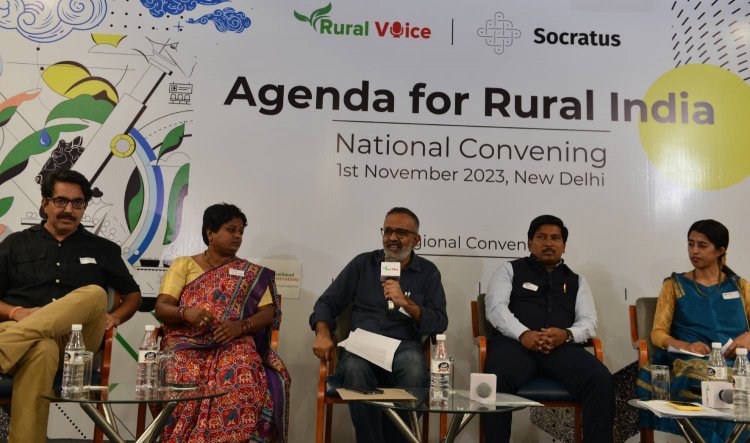



 Join the RuralVoice whatsapp group
Join the RuralVoice whatsapp group

















